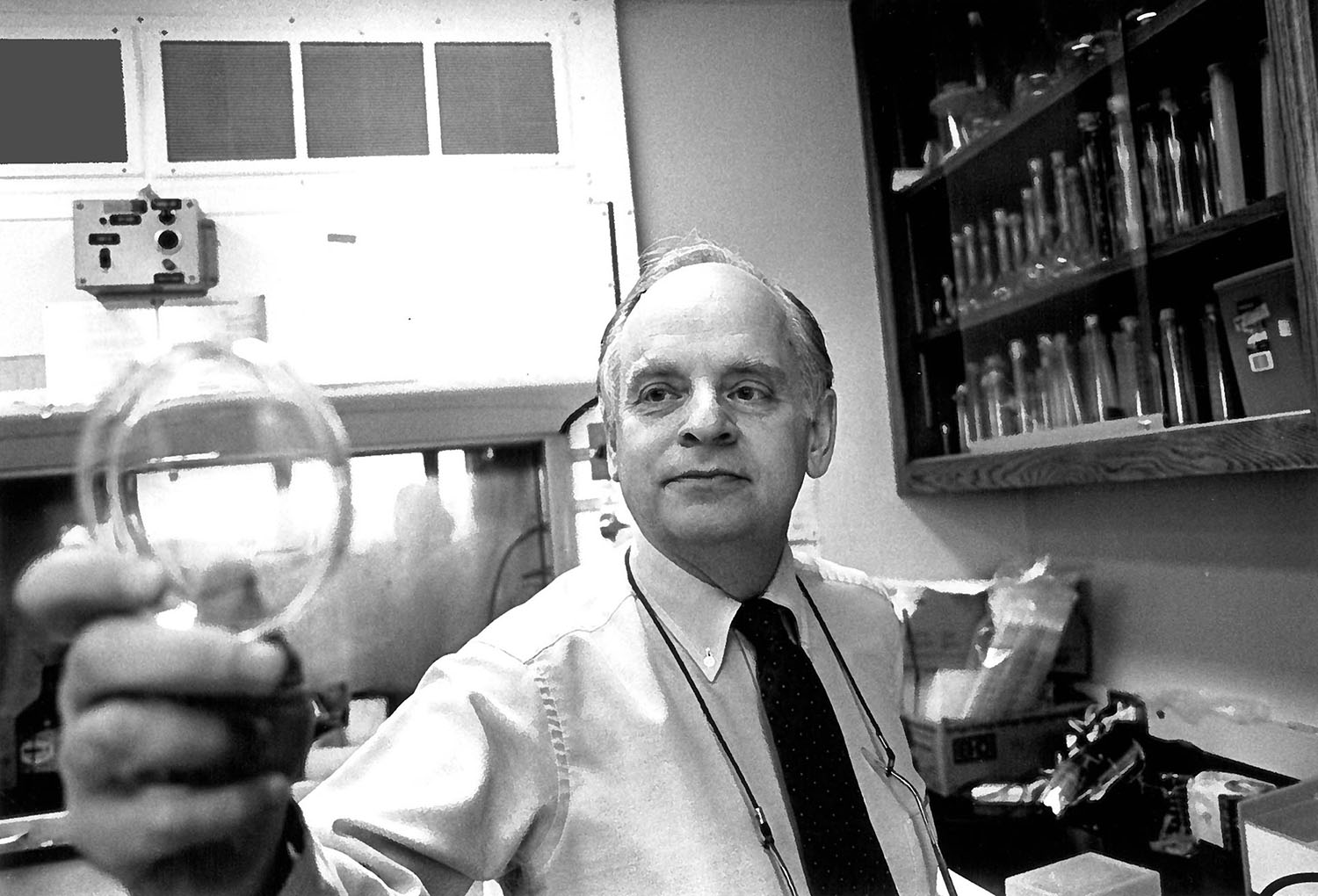
In memoriam: Seymour Klebanoff
Dr. Seymour J. Klebanoff, professor emeritus in the Division of Allergy and Infectious Diseases, passed away on August 31 at the age of 89. He was a world-renowned scholar, a mentor, and academic leader.
Klebanoff received his medical degree with honors from the University of Toronto and a Ph.D. in biochemistry from University College London. He came to the University of Washington in 1962.
He served in numerous leading administrative roles at UW, including head of the Division of Allergy and Infectious Diseases for 18 years (1976-94), acting chair (1979-80) and associate chair (1997-99) of the Department of Medicine, and director of the Research Training Unit (1964-76) and the Medical Scientist Training Program (1972-77).
Groundbreaking research
A pioneer in infectious disease research, his findings led to a better understanding of inflammation and host defense mechanisms and an understanding of how white blood cells defend the body against bacterial infections.
“His enthusiasm and zest for investigation and discovery served as an inspiration for me to pursue a career as a physician-scientist,” said Dr. W. Conrad Liles, associate chair for research in the Department of Medicine.
In 1978 he published “The Neutrophil: Function and Clinical Disorders”, which has been regarded as a definitive reference on the neutrophil and has been admired and broadly used by investigators worldwide.
Mentorship
Klebanoff was also known for mentoring and motivating several generations of physician/scientists to enter the field of infectious disease research. He was described as a patient and dedicated teacher who was eager to learn from his students, and a kind, gentle, modest and humorous friend.
He directed two major training programs: The Research Training Unit and the Medical Scientist Training Program, where students earn both M.D. and Ph.D. degrees.
“Beyond his scientific accomplishments, Seymour was a wonderful mentor for infectious disease experts that have become leaders in the field across the globe,” said Dr. Wes Van Voorhis, head of the Division of Allergy and Infectious Diseases.
A record of achievement
Klebanoff was honored with major national and international awards for his many contributions. He was elected to the National Academy of Sciences, the Institute of Medicine and the American Academy of Arts and Sciences.
He received the Marie T. Bonazinga Award of the Society for Leukocyte Biology in 1985, the Mayo Soley Award of the Western Society for Clinical Investigation in 1991, the Alexander Fleming (previously Bristol) Award of the Infectious Diseases Society of America in 1993, and the Bristol-Myers Squibb Award for Distinguished Achievement in Infectious Diseases Research in 1995.
In 2007, he was awarded a lifetime achievement award for distinguished research in the biomedical sciences by the American Association of Medical Colleges.
On November 16, 2012, he was honored locally for 50 years of exemplary service and outstanding contributions to our department and the UW School of Medicine. Over 85 colleagues, former trainees, friends and family attended the ceremony.
"I have always greatly valued Seymour’s wise counsel across the full range of academic medicine, also his excellent sense of humor. He will be greatly missed by everyone who knew him," said Dr. William Bremner, chair of the Department of Medicine.